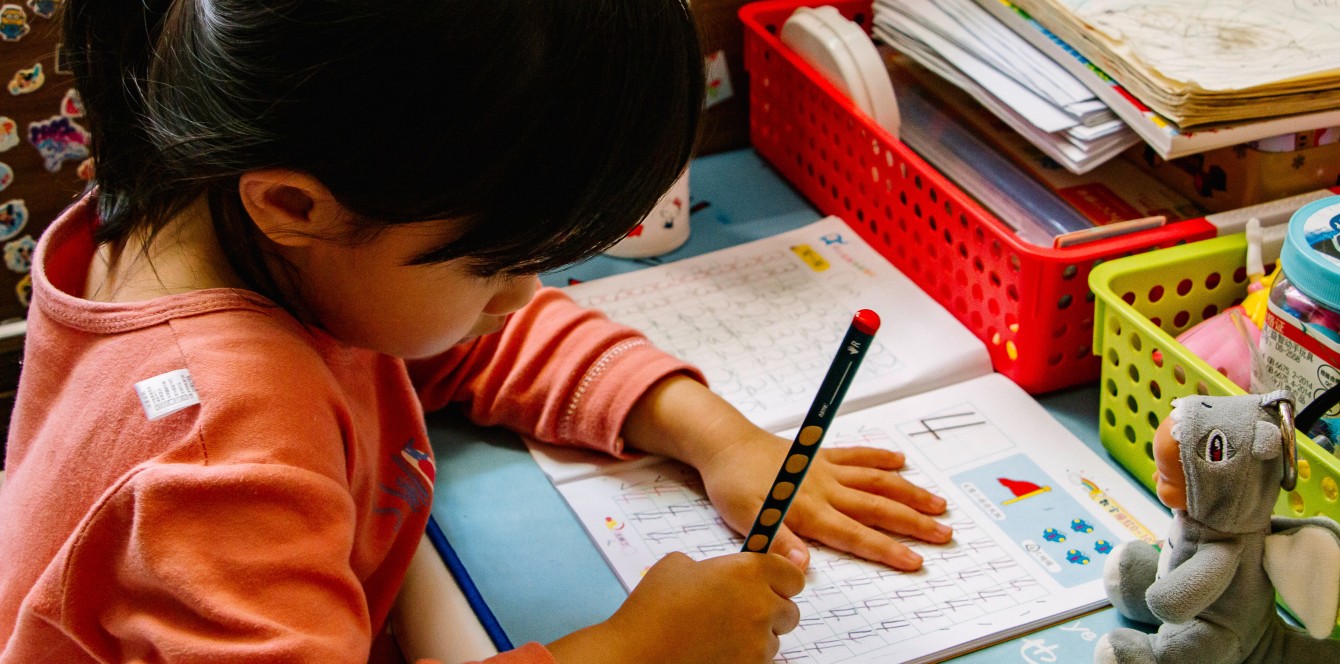The good news is that in 2021-22—the second year of schooling after the onset of the pandemic, and the first year of students returning to in-person classrooms without mask mandates—Texas’ school enrollment has mostly returned to normal, according to data published by the Texas Education Agency earlier this month. The bad news is that every cohort that misses pre-K is less likely to be ready for kindergarten or first grade—and may face longer-term challenges as a result.
The prolonged decline in pre-K makes sense. Virtual schooling was impractical for this group of students, and without a vaccine for young children, many parents may be cautiously waiting out the pandemic. Texas was going through peak Delta variant case counts just as school was resuming in August, followed by the Omicron variant in the late fall and early winter.
But the decline is also occurring just after the state expanded pre-K to full-day in every district, throwing a wrench into any hopes of realizing the potential benefits of this legislation. Research has repeatedly shown pre-k contributes to a wide range of later successes beyond simply being better prepared for kindergarten—including higher graduation and college-attendance rates in Texas and other benefits. (Understanding Houston, a project by the Greater Houston Community Foundation with support from the Kinder Institute for Urban Research, has a great analysis of the state of pre-k locally.)
Statewide, overall enrollment for the 2021-22 school year is up over 2020-21, and it is only 1% lower than the peak in 2019-20—or 66,000 fewer students, according to Texas Education Agency reports. These declines are concentrated in Early Education through Grade 7, where there are 128,000 fewer students in 2022 compared to 2020—a significant drop that was offset by enrollment increases in other grades, particularly high school.
In 2019-20, the state of Texas had more than 250,000 students enrolled in pre-K. That dropped by more than 50,000 in 2020-21. About half of that number recovered in 2021-22, but on the whole, the state has 10% fewer pre-K students than it did pre-pandemic.
This decline is pronounced in urban districts, with just four counties in the Texas Triangle—Bexar, Harris, Travis, Dallas and Tarrant—accounting for about half of the missing students. El Paso, Laredo and urban areas along the Rio Grande Valley also reported significantly fewer pre-K students this year.
The pre-K enrollment decline seems to be disproportionately concentrated among Hispanic students, who comprise about two-thirds of overall pre-k enrollment but represented 70% of the drop in 2020-21 and 88% of the drop in 2021-22. Many of these Hispanic students entering the school system are Spanish speakers, who are among the groups who can get some of the biggest short-term boosts from early education interventions. In Houston ISD, for example, the Houston Education Research Consortium found that 59% of Spanish-speaking students were kindergarten-ready after one year of pre-K, compared to 29% for those who did not attend any pre-K.
It will be that much more difficult for districts to close achievement gaps every year until they get more robust pre-K attendance—which may not happen until young children can get vaccines or other underlying barriers are addressed.
While much is being done to address learning loss during the pandemic, a concerted effort will be needed to help the thousands of students who did not get a good start to their schooling these past two years. Any effort to accelerate student learning can work only for those students who are enrolled, but thousands of students in the Houston area, and tens of thousands of students statewide, are simply not in the classroom. In particular, this concerns the students who qualify for free pre-K because their families may not otherwise have access to high-quality early education options.
These students, whose education has been fundamentally set back, will need additional support when they eventually get enrolled, either in kindergarten or first grade.
Meanwhile, districts in major metro areas and border counties will also need to redouble efforts to expand pre-K enrollment. Prior to the pandemic, Texas fared better than most other states in terms of pre-K enrollment, with 9% of 3-year-olds and 47% of 4-year-olds in school—compared to 6% and 34% nationally— and with new momentum coming out of the state legislature’s efforts around HB 3, it seemed the state was poised to advance its early education resources even further.
With enrollment now underway for pre-K across most of the state, school districts have an opportunity to get these numbers back on track for 2022-23. It is not too late to get more children signed up for next year.



